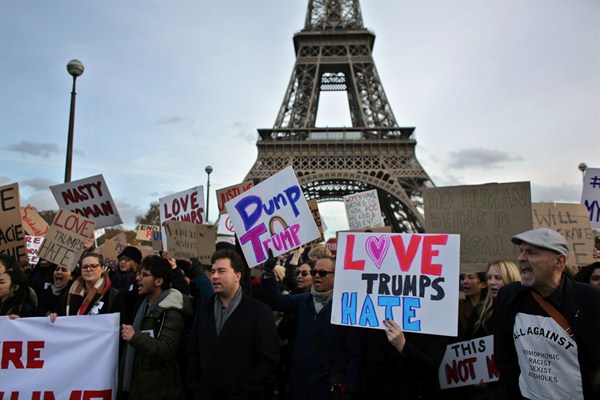The surprise election of Donald Trump as America’s 45th president has upset long-standing assumptions about America’s role in the world. It also calls into question the country’s future trajectory as the guarantor and administrator of the international order, a position that has been so carefully built and nurtured by Washington since the end of World War II. America’s European friends and allies are among those most worried about the future U.S. role in Europe, at a time when the continent is surrounded by instability and faces an increasingly aggressive Russia to its east.
This unease is understandable if one considers Trump’s rhetoric during both the primary and general election campaigns.
As a candidate, Trump seemed much more focused on the threat of terrorism spreading from the Middle East, rather than on a Moscow seeking to rewrite the rules of the game in Europe. He questioned the very foundations of NATO, suggesting that U.S. security guarantees to a European nation under attack may only be applicable if that county had paid its fair share of the alliance’s defense burden. For some, his talk of a “deal” with Vladimir Putin’s Russia provoked images of a second Yalta Conference, where the U.S. and Russia would once again divide Europe between them, potentially leaving states such as Georgia and Ukraine—and perhaps others—on the Russian side of the table. Finally, Trump’s victory, due in part to populist attacks against free trade deals, threw the Transatlantic Trade and Investment Partnership, or TTIP, intended to supercharge the trans-Atlantic relationship, into serious doubt.

